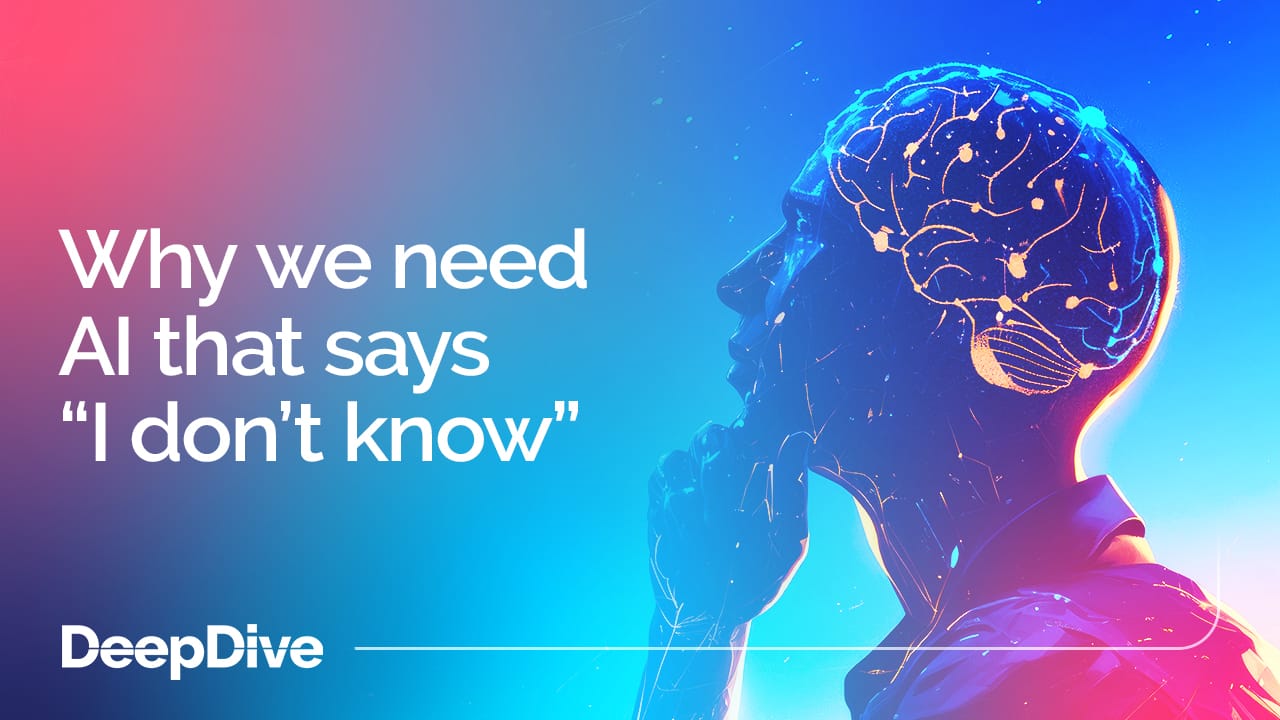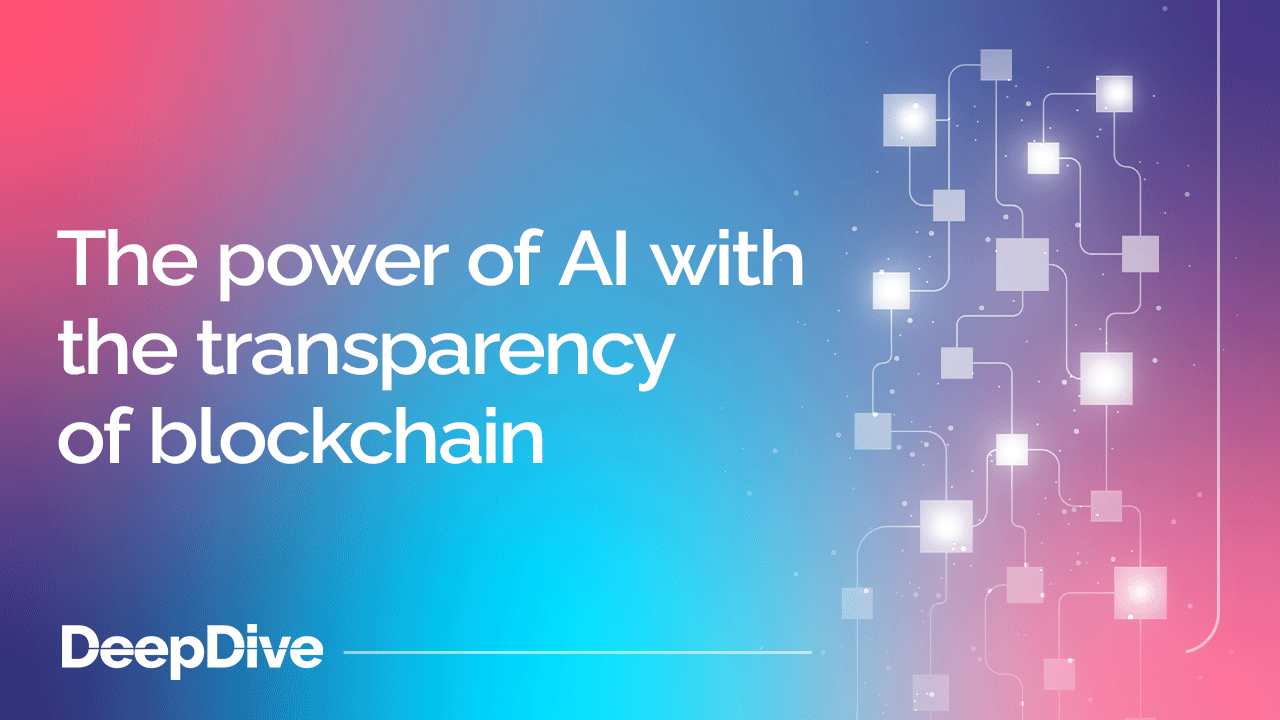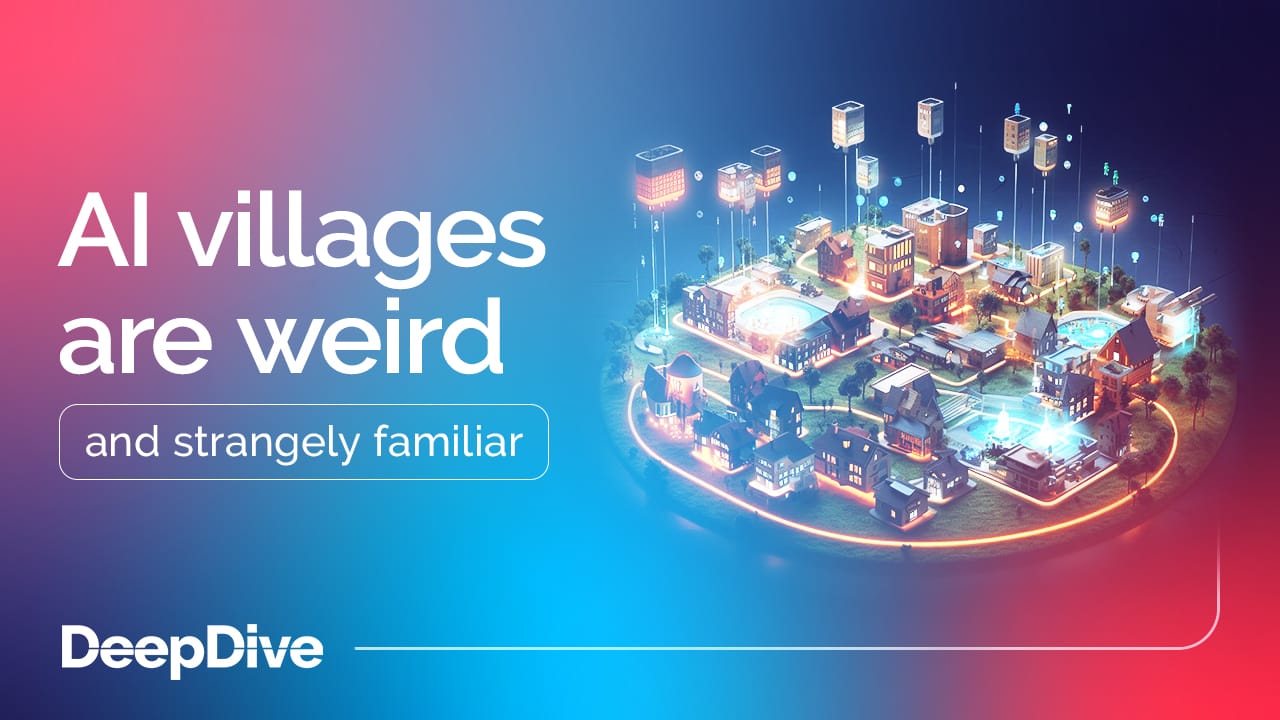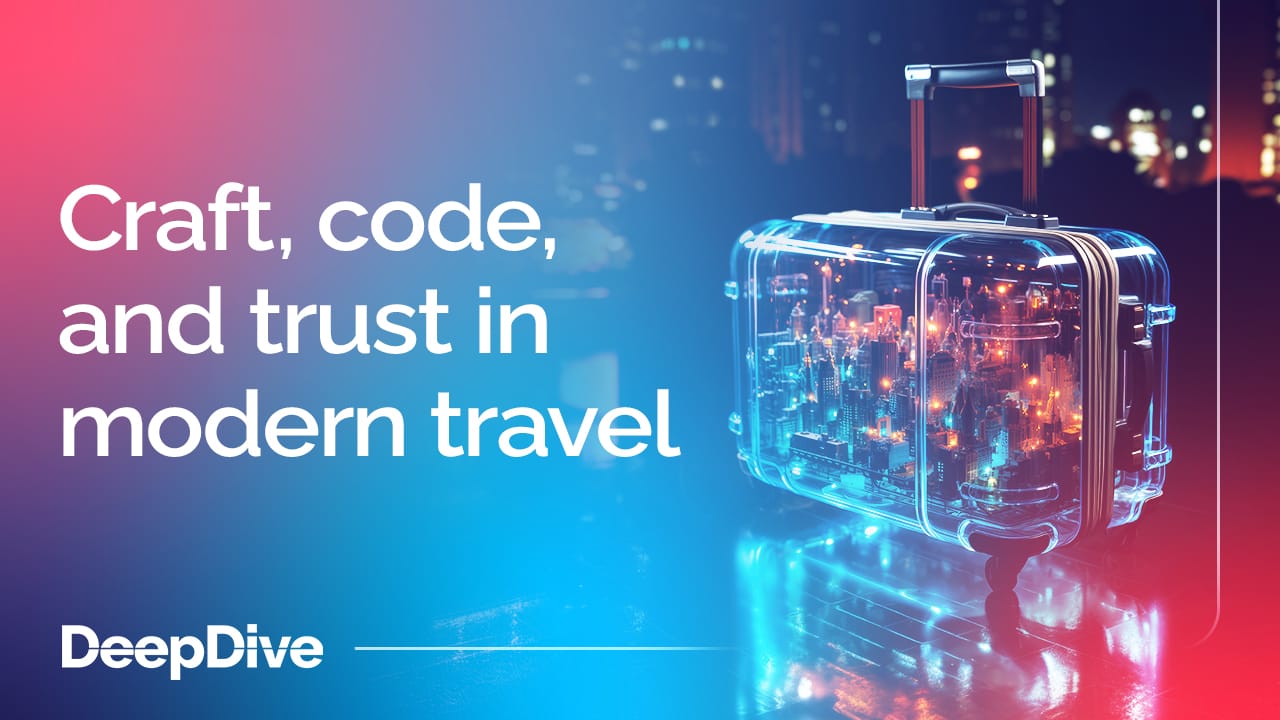

The power of AI with the transparency of blockchain

Welcome to the 9 new deep divers who joined us since last Wednesday.
If you haven’t already, subscribe and join our community in receiving weekly AI insights, updates and interviews with industry experts straight to your feed.
DeepDive
Your weekly immersion in AI.
What could happen if we blend the power of AI with the transparency and decentralised systems of blockchain?
That’s what we wanted to find out from Marcello Mari (Founder and CEO at SingularityDAO) – so we caught up with him to ask how blockchain and AI can influence each other to create a positive tech future.
Marcello was part of the original founding team behind SingularityNET (ASI), the project that first pioneered the convergence of AI and blockchain in 2017. He also coordinated the world’s first NFT artwork collaboration between a human and an AI (Andrea Bonaceto and Sophia the Robot, respectively), which generated more than USD $1.4 million in sales.
Find out why an AI-blockchain synthesis is key to unlocking the potential of both these technologies.
Tell us about SingularityDAO. What was the driving inspiration behind it?
“I started my journey into crypto in 2017 thanks to SingularityNET, where I was one of the first employees to join the team captained by AGI world star, Dr. Ben Goertzel.
“The mission of SingularityNET was to offer an alternative way towards the creation of AGI that doesn’t go through centralised enterprise giants. Thanks to blockchain technology, we can ensure a decentralised and democratic approach to AGI development that is inclusive and fair to everyone.
“AGI will be the most important technology ever created by humanity and we can’t afford it to be developed within closed doors.
“SingularityDAO (soon to become Singularity Finance) is a spin off of the SingularityNET Foundation (now ASI) which aims to bring AI to the world of decentralised finance for digital assets management.”
Why did you start working at the intersection of blockchain and AI - and in the future, what do you imagine could be possible through the convergence of these technologies?
“I saw a tremendous opportunity to address some of the most pressing challenges in technology and society today using AI and blockchain. AI has the potential to revolutionise industries – but it often operates within centralised frameworks that raise concerns around data privacy, control, and bias.
“On the other hand, blockchain technology offers decentralised solutions, transparency, and immutability, which align perfectly with the need for trust in AI systems. Together, these technologies can empower individuals and organisations to achieve greater fairness, efficiency, and collaboration.
“In the future, I imagine the convergence of blockchain and AI could lead to groundbreaking possibilities.”
What might those groundbreaking possibilities look like?
“They might look like…
- Decentralised AI Systems: AI algorithms hosted on decentralised networks, enabling secure and equitable access for developers and users without reliance on centralised platforms.
- Data Sovereignty: Blockchain can allow individuals to own and control their personal data, granting permission to AI applications on a need-to-know basis while maintaining privacy and earning value for their contributions.
- Autonomous Economies: AI-powered smart contracts could enable autonomous organizations and services, from decentralised autonomous organisations (DAOs) to AI-driven supply chains that operate with minimal human intervention.
- Global Collaboration: Combining AI’s problem-solving capabilities with blockchain’s transparent frameworks can foster trust and collaboration among organisations, researchers, and governments on a global scale.
- AI Ethics and Accountability: Blockchain can log AI decision-making processes, ensuring transparency and accountability in critical areas like healthcare, finance, and public policy.”
Do you think the transparency of blockchain data could help to combat bias within AI systems?
“Yes, the transparency of blockchain data can play a significant role in combating bias within AI systems. Firstly, because blockchain’s immutable ledger ensures that all data inputs and AI model changes are recorded transparently. This allows stakeholders to trace the origins of training data, monitor the evolution of the model, and audit decision-making processes. By identifying bias in the data or algorithms, corrective actions can be taken more efficiently.
“Bias in AI often stems from flawed or incomplete datasets. Blockchain can verify the provenance of data, ensuring it comes from diverse, trustworthy sources. This reduces the risk of biases introduced by skewed or unrepresentative datasets.
And blockchain can also facilitate decentralised data marketplaces where diverse datasets are securely shared and accessed. This has the potential to democratise access to data, ensuring that smaller organisations and underrepresented groups contribute to, and benefit from, the AI ecosystem. Such inclusivity can mitigate the dominance of biased datasets controlled by a few centralized entities.
“There are a number of other ways that blockchain can mitigate bias in AI; from identifying biases in decision-making processes so they can be challenged, to enabling decentralised governance models where communities can oversee AI systems, and raise concerns about bias.”
How will AI influence cryptocurrency markets over the coming year?
“Artificial Intelligence has become one of the major industry verticals in the crypto economy. Over 260 companies that are currently classified as Web3 AI companies have been launched over the last seven years for a total market cap of over 40 billion dollars, making it one of the top industries in crypto.
“Decentralised AI startups have raised more money this year than the previous three years combined, according to PitchBook data. Investors have deployed $436 million this year, a nearly 200% increase from 2023.
“This is great news for the whole AI industry, although there is still a huge potential to grow decentralised AI companies to compete with multibillion dollar centralised startups. To put things in perspective, OpenAI alone has a current market cap that is more than three times the whole market cap of the decentralised AI industry.”
Thanks to Marcello Mari at SingularityDAO.





